Listen to the podcast here
Get Some Perspective on the Real Estate Market Now with Maureen McCann
Have you been interested in investing in real estate, but nothing you’ve looked at so far looks blissful? If so, I totally understand. That’s why I’d like to introduce you to Maureen McCann at Spartan Invest. At Spartan Invest, they strive to identify real estate assets which will offer viable investment options with exceptional rates of return. They do the work for you. They locate, purchase and rehab the property, then find and manage the tenants. You simply invest in a turnkey property and monitor your investments from the comfort of your own home. What could be more blissful than that? If you would like to find out more, go to www.SpartanInvest.com/Investing4Women or email Maureen directly at [email protected]. Let her know I sent you.
—
I am excited to welcome back to our show my dear friend, Maureen McCann. She’s been on the show several times before. We were on a conversation on the phone talking about the realities of what’s going on in the real estate market and all the mixed messaging that’s out there. We decided we were going to chat with you guys on our perspective of what’s happening in the real estate and what we might be able to anticipate. For those of you who have not met Maureen, let me go ahead and read her bio so you have a little bit of background on her. Maureen is the Cofounder and Principal Owner of Spartan Invest and operates as a VP of Sales and Marketing for this boutique-type real estate investment company. Spartan Invest is a small real estate investment company that specializes in providing investors turnkey real estate from monthly passive residual income.
Maureen brings with her years of sales and marketing experience in the turnkey marketplace. Having served as an investment property coach for years, Maureen is skilled in helping clients build turnkey cashflow portfolios for her clients. Maureen has helped hundreds of investors build the type of rental portfolios necessary to receive short-term and long-term monthly passive income goals. Investing in turnkey real estate for long-term wealth generation is something Maureen understands intimately. Whether clients want to replace their income with passive income or clients are simply looking to supplement their retirement, Maureen can custom design the right portfolio with the right end goal in mind. Maureen, welcome back to this show.
Moneeka, it is good to be here. There is a lot to talk about in this episode.
When I’m out there, I’m listening to a lot of different podcasts to hear what everybody’s saying, and we’re getting exact opposite predictions, ideas and stats. There’s no way to know who’s going to be right. Predictions are predictions. Sometimes they’re based on stats, but you can see, we can get stats from all different places to support our predictions. I thought that it would be valuable for us to talk about our perspective. Ladies, the thing that I want you to know, and this is something that I stay aware of is someone is going to be right but we don’t know who it is.
Maureen and I are not here to make predictions. We’re here to give you a bird’s eye view of how we are looking at the market and what kinds of investing strategies we’re making. Whatever it’s worth, you can follow us or not. If you will take it as perspective and take pieces of it, that’s great. Understand that we’re not trying to be predictive and tell you what to do. We’re giving you our perspective. Is that fair?
That’s fair for me.
Maureen, we are in different markets as far as where we’re investing. You had some great information on some studying that you had done. Why don’t we start there? Why don’t you tell us what you’re seeing out there in the world?
On the ground level, it’s important to share what is happening in the real estate investment world in the market that I know that I do business within and live and breathe every day. That’s not going to be the same for every single market. However, a lot of the other turnkey operators that I spoke with, they have all said similar things. Even amongst a pandemic and the high unemployment numbers, you would then think that there is going to be an exorbitant amount of people that are not able to pay their rent. I do recognize that there is going to be a certain percentage of people, whether it’s their homeowners struggling to pay their mortgage because they got laid off or furloughed, or it’s renters that are not able to pay their rent because of the same reasons. Every market is different. There are some markets that the overall GDP of the area is predominated or predicated. It is dominated by a certain industry.
Las Vegas comes to mind so as Orlando, Florida. These are markets that have high travel tourism, hospitality-based economy. They’re the ones that are going to be more affected and more exposed to a pandemic like this. It’s not anything related to any precondition in the economy. It was simply you have to close your businesses down. Prior to that initiative of the shelter in place and all businesses stop, the economy was warring. The fundamentals are there and in my opinion, they’re still there. They didn’t go away. It would only close your doors until we figure out what’s going on here so we can blunt the curve and prevent the local hospitals from being overwhelmed.
You’ve got markets that are exposed to the effects of COVID and then you have others that are insulated. What you were talking about earlier is that there are all of these varying opinions and it makes sense because it’s probably locality-based. It’s probably what they see in their own backyard. This is where sharing what it is that I see in my backyard, what you see in your backyard might be different and can be contrasting, but it’s also market-based. It’s not overall. A lot of times, you hear something or you see a headline and you make a generalization. This is the human mind. You make the generalization that it’s the entire market. It’s not like that. Luckily, I can share that the markets that I’m in. These are not Birmingham and Huntsville, Alabama. People are not clamoring to get on planes to go vacation and sip martinis by the pool in one of these markets. That’s not what we do.
It is a more industrial base. It’s healthcare, manufacturing, trade utilities, banking, finance, technology, aerospace engineering. There was some good news that we had a rocket that went up into space. The Dragon made it up into the space. We’ve got two new astronauts up there doing some work at the space station. That was super big news. A lot of that effort and work came out of Huntsville because Huntsville is an aerospace engineering type of market. What’s relevant for the readers is, number one, turn off the news. That’s first and foremost. Please do yourself that favor because I’m going to admit. When this COVID thing first hit, I was absorbed and consumed in watching it. I noticed my entire brain circuitry was firing on all negatives. I was feeling down, blue, despair and heartache.
You have to remember that those news outlets are all about sensationalizing headlines to drive traffic, to get ratings, to monetize their stations. There’s nothing wrong with it. You have the choice to either tune in or tune out. When you tune out, you don’t realize that life is not as horrible or as dooming gloom as they want you to believe that it is because they want your attention. We have so much grasping for our attention that the most sensational headline is going to win. They know it because that’s how our minds go. It’s like when you see a headline, you go, “I want to know what happened right there,” and then you’re off track. You lose focus.
I’ve been telling people from the beginning is that there are things you need to know and understand that the news is another tool to help to keep you informed. The problem is that most people use it as a tool to get them depressed. They get them freak out. You are not using it as a tool that supports you. I’m telling everybody is to get relevant information from news sources that you trust. Give them ten minutes of your time, get your executive summary, move on with your life and live in the life that’s happening rather than the life that they’re talking about. There are many interesting stories or curiosities. Most of that is designed to create an emotional response. When you’re talking about negative things, the emotional response they’re going to get from you is a negative response. You need to manage that.
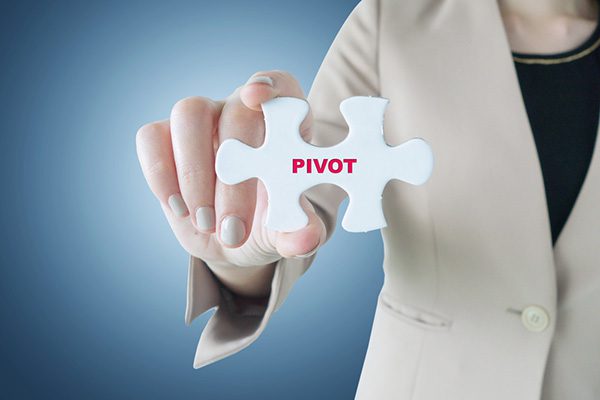
Real Estate Market Perspective: There are businesses that have had to pivot. The strategic savvy business owners and leaders recognize that.
This is one of our bliss practices, you manage what’s coming in. I’m telling everybody all the time to be aware, vigilant, but stay positive. You have control over that. I’m glad that you mentioned that, Maureen. It’s such a big key to staying on top of this. With the pandemic, your immune system is your best friend. If you are watching the news and make yourself depressed, upset, angry, and hyper reacting, your immune system drops and it makes you more susceptible. In a very selfish way, it’s important that you keep your eyes off the news that’s not supporting you. Use it as a tool that’s there for you to keep you safe.
For ten minutes, get your executive summary checkout, get back and check into your life because as soon as I implemented that practice. For me, life was normal. I was like, “Let’s keep going. Nothing was stopping me.” That’s how I’ve been operating ever since. The world has responded in kind. What’s important here in this interview is that there are businesses and people that are thriving through the pandemic. There are others that are suffering. There are businesses that have had to pivot the strategic savvy business owners and leaders. When they recognize that their doors have to be closed for a particular length of time, for a particular reason, some of them are sitting idle and they may not open back up. Others are pivoting and figuring out ways they can still provide value without having to interact. I can give you an example, my nail salon.
They couldn’t open their doors for business, but what they did do was they pivoted. They got creative and then they home-delivered your nail kit. The clippers, the nail files, the gel and stuff that you needed to do your nails. If you couldn’t do them yourself, go into the salon. They were like, “We’ll give you all the materials.” They’re going to charge you. They should because they’re a business owner trying to stay in business. This is a business that you supported and loved and kept going to whatever it is, donut shop, nail salon. Anything that you support locally, they’re trying to find a way to pivot to still serve you and provide value to you, support them.
Whether it’s a pandemic or the 2008 global financial crisis. I was not in real estate in 9/11, but you’ve got this major life and this writing this situation that’s going on. All of these major things are going on and it is true. There are businesses that are going to thrive and those that are going to suffer. The ones that suffer if they don’t pivot will go out of business. The ones that pivot will stay in business and find new ways of doing things. They are finding new ways to serve the community that they went into business or in the first place.
Talk to me a little bit about how that’s affecting your market. Are you seeing that a lot of the fear is that real estate prices are going down, people aren’t paying rent, landlords are suffering? This is what we’re hearing in the news, but what’s happening? I’ll give you my perspective, but I know that you manage many properties. I want to hear what you’ve got going on over there.
We do have 1,200 doors under management. With the biggest question that we were getting from everybody, including ourselves in mid-March 2020 when the shelter in place orders came in, we thought, “How many of our residents are negatively impacted financially by COVID?” You don’t know at that particular moment, but it’s going to show up through the percent of the rent collected. That’s when you know. Luckily for us, the shelter in place orders across the nation, we want it to be placed about mid-March. We had already had the majority of the rent collected on those 1,200 doors. We had seen that it didn’t affect us in March. I will give you a metric. Internally, at the end of 30 days, we look at the percent of rent that’s uncollected. There’s always a certain percentage and you want to keep it under 5%. That means if you got 95% of the rent for the month, you are doing great. The lates and stragglers always happen. That’s part of the business. They’ll eventually catch up, but there’s always a certain percentage of the rent that’s uncollected at the end of the month. In April 2020, it went to 7%. There is only a small uptick. We did an initiative where we sent out a survey to all of the residents.
We said, “Raise your hand if you’ve been negatively affected by COVID and you’ve lost your job. Let us know. We want to help.” Out of the 1,200 doors, we’ve got 224 responses. Only nine were able to support with documentation that they were laid off. Maybe there were some opportunists in there not blame them. That’s all right. Everyone’s got hustle, but you’ve got to supply the documentation. Out of the nine, they legitimately lost their jobs. We help them relocate and to find other jobs. We’ve redirected their attention to find other jobs. We sent out an incentive to say, “If you pay your rent on time in April, then we’ll deduct $75 off your rent.” We had 79% of the rent collected by the fourth day of the month that told us that the majority of our residents were still being paid. They were still employed. Our investors were protected. The asset was protected. The debt service would be covered for those investors that leverage their properties.
We knew at that point, we were in good shape. May, the same thing. We have a lot of the rent collected in the high 90%. This is market-based though. If we were in Vegas and I’m not there, but I’m making an assumption. Las Vegas is a place that is hospitality, travel, leisure-based predominantly. No one’s coming to see shows in Birmingham, Alabama or Huntsville, but they are in Vegas. Those are residents living there that the stimulus money is going to carry them for months, but they’ve got to get those doors open as soon as the people can resume work and get back to work.
We’re not going to have the same housing problem that we did in 2008. The fundamentals behind me saying that number one is we didn’t have the predatory lending or the subprime loans for people that didn’t qualify were able to get into homes that they can’t afford. The rates adjusted, the payments went up and then they couldn’t make the payments. That is not the situation here. Sixty percent of US homeowners have 58% equity in their properties. You don’t have that situation.
There’s a majority of homeowners that have equity in their homes. You can access the equity to cover any costs or any delay in employment that will cover you. My advice to readers is trying to get access to your equity now is probably challenging for you because you have to wait in line. Many of these lenders, especially in the single-family space, they’re still liquid. They still have capital. They’re still lending. I know the commercial space is a little different. I’d love to hear if you’ve got any insight on that or what you’ve been hearing. Most of that commercial side is private lending. You’ve got equity groups and things that are lending to buy these big buildings. That I’ve heard through the CEO of CoreVest that has been stalled a bit.
There is free-flowing capital in the banks for them to lend to buy a single-family, but they are servicing those primary homeowners that want to buy a home first. If you want to refi, you’re in line. You’re second. In a situation like this, if you have equity in your home pre-pandemic, post-pandemic, any time, it’s important to have access to it. Get the line, have it available to you so that if you need it, you have it at your fingertips versus trying to go get it when everyone else is scrambling.
I want to get a little clarity around that because this is a question that a lot of people ask me. Is it getting an equity loan or an equity line? Let me clarify what those two things are. Both of those are the second loan that goes behind your first mortgage. Your first mortgage is probably how you buy your house. The second is going to go behind your first, which is why it’s called a second. If you do a loan or if you refinance and take a cash-out to get some of that equity, you start paying interest immediately on that lump sum of cash that’s given to you. If you do an equity line, it’s like getting a credit card that secured on your home, which means the rate’s going to be low. It’s going to be closer to 3%, 4% or 5%, but you don’t pay anything on it until you start utilizing that money.
I want to add this because this is the stuff that I’ve been saying daily with investors is that there is an opportunity in everything everywhere, all the time. It’s your perspective. You could use this opportunity to contract in fear and then do nothing. I think about the people back in 2008. If you have listened to the headlines, what’s contradictory is that headlines, news media outlets, it was like a global financial meltdown. Everything is closing. The global economy is collapsing. I remember hearing those words and yet my phone was ringing incessantly for people looking to invest in real estate. What they knew with those investors knew then and what I know now with 100% certainty is that real estate is not necessarily recession-proof like it’s bulletproof, but it has certainly shown that it is recession-resistant.
Even during recessions, it has increased in value. Three out of the last five recessions real estate has improved. It has increased in value. There is much literature now circulating that world economists, global economists, companies like JP Morgan, Wells Fargo are talking about how real estate is going to lead us out of this recession. There are two thoughts I have here. Number one, in 2008, we all realized that the US housing market drives the economy. It does because we all saw those little derivatives were packaged up and those mortgage-backed securities were set and sold around the world.

Real Estate Market Perspective: Real estate is not necessarily recession proof but it has certainly shown that it is recession resistant.
The whole world felt it when the US real estate market not collapse and everyone’s panicking. Does that not tell you how important the US real estate is to the world economy? Let’s fast forward. We have the lowest interest rates that we have ever seen in investment loans. Prior to 2008, these loans were 7%, 8% to 9%. We are talking about 30-year money is cheap. It is under 5%. You’re at 3.375 to 4.25. It fluctuates around every day, but you can lock into 30-year cheap money and get higher cashflow for the next 30 years because you locked into a low-interest rate. Your cashflow to a premium income generating property is dependent on the interest rate you lock-in and the rent that you receive.
If you can get higher rent and a low-interest rate, your cashflow is going to be high for 30 years. This pandemic will be here now. It’s probably going to be here a year from now. We have some vaccines, better testing, better ways of preventing this from spreading. It’s short-lived, whether that’s 1 or 2 years compared to the opportunity to invest in real estate that has been shown to be recession-resistant and to still increase in value even during strange times like these days. It’s not a sales pitch. It’s not me saying, “Buy a product.” It’s pointing out to you, the investor, the reader, the seeker of knowledge, how do you make sense in a world that is having contrasting views on all types of things? Moneeka and I are here to share what we see in our backyards because we are in real estate 24/7.
This is the other key important point too is that there are basic things that we all need as humans. We need food. Our grocery stores are crushing it as far as their shareholders are probably happy because sales are through the roof. They’re doing well because you realize that’s essential. Housing is essential. No matter what is happening 9/11, 2008 global financial meltdown, a pandemic, you still need a place to live and you will figure it out. You, personally, your renters, your tenants, your residents will figure it out too. They will figure out a way to pay because they need shelter. I would love to get your input on this too to see if you’ve got any input on the multiunit space.
I’ve listened to a few panel discussions where they’ve had single-family people on there with multifamily people and then build-to-rent people. When you have to live at home, work from home, study from home, space becomes a big commodity. If you’re living in a big box city or in a high-density city like New York, or you’re living in a high-density building like a multiunit, and everyone is home all at the same time, 24/7 for weeks, people are getting on each other’s nerves. It’s the truth. They want more space. They want to get out of those high-density places and live in more spacious accommodations. Hence, the reason we have been busy because you get stimulus money. These are people that are probably still working.
The first stimulus package was, if you make $75,000 or less, you’re going to get a check for $1,200 per adult, per household and you’re going to get $500 per child per household. If you have a family of 4, 2 adults, 2 kids, you’re looking at almost $4,000 coming to you and you’re still working. Does that give you enough money to move out of a box? It does. Hence, it’s the reason our leasing phones have been ringing. I have a 98.4% occupancy rate now. It’s the highest it’s ever been. That’s crazy during the middle of a pandemic. That’s real data. That’s not me. When something like this happens, you’re trying to figure out what is going on. It makes sense that if you’ve got people in high-density residences that are living on top of each other and you work, live, and study from home and you now need more space, you’re going to go find it. Especially if you’ve got stimulus money, or even people are still getting income tax returns, their checks. All of a sudden, you’ve got thousands of dollars. Now you can move. I’ve talked to other operators like me, who I’m friends with and the same thing’s happening for them too.
I live in a condominium complex myself. There are 45 units. We’re all on top of each other. I’m hearing this also. I completely support what you were saying, Maureen, is that the single-family home is like magic now. People are coveting that space. It has always been that way that the single-family home is a foundational thing in our society. It’s something that provides more of what we want in our homes than any other form of housing. It’s why that market is stable and reliable. Even in my own condo complex, we have a lot of retired people and we have a lot of young families. We’re all going up and down the elevators together.
The older people are scared because younger people are not wearing masks. They’re not at risk. They go into these elevators in these compact little spaces and they’re spreading their germs. The older people on the fourth floor or whatever have to take those elevators down because they can’t walk down the stairs. You’re seeing in real life how this plays out in a time like this. What happens is people say, “I don’t ever want to be at risk like that again. I want more room for my children. I don’t want to be around germs of younger people. I want to be safe in a place that feels more protected.” I do also see that the single-family market has continued to go up. From my perspective, if you look at housing prices, the days on market is longer because people are having trouble going in and seeing places.
It takes longer to shop, but prices are still either stable or a little bit up. If you look at high density, we are seeing that the prices are going a little bit down. They’re still not plummeting but you definitely see a gap between the single-family and the high density. This is the thing that I want everybody to take in from what Maureen and I are saying. Use your common sense. Let’s talk about common sense investing. There are lots of ways to make exciting money in real estate. The true blissful way is to take a look at what makes sense and invest in that way because that’s going to be less stressful. It’s like the stock market. If you invest in something that’s exciting and is going to gain 100% in three days, it also can lose that much. It’s the same in real estate. If you’re going for exciting investments, you might make a lot more money, but when things go bad, they go bad. The thing to do is take a look at what makes sense in your communities. I can tell you what makes sense in my community. Prices have stabilized. They’re still high. In lending, the conforming loans, what is it over there for you in Alabama? What’s conforming to you?
There’s the jumbo.
What is the basic conforming for Fannie and Freddie?
I’ll speak to the investors, like $150,000.
In California, basic standard-conforming is $510,000. We then have large conforming, which goes to $765,000. After that, it’s called jumbo and max jumbo. Those are the tiers of lending. Everybody is able to get a conforming loan because they’re backed by the government. They’re backed by Fannie and Freddie. They’re still lending. They’re still giving you great rates. They’re still not charging you a lot of points. Even for us, if we go into large conforming, rates skyrocket. The rate goes up by at least 1.5. The points go up by at least 2 to 3 points. Points are what you pay upfront to get that loan. It’s harder to get those larger loans, but conforming is backed by the government so it’s easier to get.
I’m shopping and every property that I’m looking at is $1 million. I can’t get the loan that I want. The best that I could probably do with what I want to pay is $510,000. What does that say to me? My market is not the market for me to be investing in. However, it is a good time to be investing in a market where the loans can be Fannie and Freddie backed, they’re conforming. I might look, for instance, at Maureen’s market or several other markets around the country that are giving you cashflow that you can still get loans on those properties in conforming pricing. Take a look around, things may not be exactly what they have always been, but there are still opportunities. I wouldn’t sit back and say, “Everything is horrible because of what you’re seeing in your backyard.” I can’t afford housing in my backyard now, but I probably will in a couple of years. What I want to do is I want to buy something. Look at what’s happening and make common-sense decisions. In the end, it’s these common-sense decisions that continue to rise because they are resilient. They make sense and people need those homes.
You made me think of a client that I talked with. I won’t give his last name, but let’s keep him anonymous. He called me and he was super gung ho. He’s like, “Maureen, I’m ready to buy.” I was showing him some properties and then I got an email from him. He’s like, “I talked to my CPA, my financial advisor. They told me to sit back, to stop what I was doing and to wait and see.” I had to word it eloquently. I wanted to tell him that that was dumb advice from his CPA and his financial advisor. I get his perspective. The readers might be thinking, “She’s a salesperson. She’s trying to sell something because she needs a commission so that she can pay for her house or whatever.” It’s like, what was more important to me was to take some advice from someone that’s a billionaire like Warren Buffet, who said, “When others are fearful, be greedy. When others are greedy, be fearful.”

Real Estate Market Perspective: Recognize that there is still good and there is still opportunity. There is still ways to profit in real estate.
There are times where it’s going to flip flop. We are in a time of fear that is being perpetuated through news outlets and social media sites because it catches attention and headlines. When someone has a net worth in the billions of dollars, they have a mindset and experience that commands them to be able to say what it is they say. We, the layperson, who’s not the billionaire has to look at that and say, “Why is he saying that? Why does Warren Buffett say, “Be greedy when others are fearful?” It’s because of this. I was able to convince Vignette to move forward with the purchase and not listen to and ignore the advice of people that he’s paying to provide him a service. They were doing him a disservice because they were not giving him the correct information, in my opinion. They are telling him to sit on the sidelines, wait and see, for what? Until the interest rates rise and then you miss locking in the 30-year rate that you wait for the inventory dwindling? They let you get the leftovers of what other people pick through because they were the savvy investors that were jumping and that recognized the opportunity versus the ones that are going to go, “I’ll jump in after it’s late and the interest rates are higher. I’ve got to pick out what’s been picked over already.”
I was able to have a conversation with him. He used common sense. I wrote this email to him. I supported it with some documentation. There was a cover story on the Wall Street Journal about how real estate is going to lift us out of the recession. I sent that to him. There’s a blog called Keeping Current Matters. They talked about how real estate is positioned to bring us out of the recession. I sent him the information and I was eloquent in my, “Don’t listen to your CPA and your financial advisor. They’re not giving you good advice.” He thought about it and he came back two days later and said, “You’re right. I’m going to continue on with my investment strategy.”
I was like, “Good for you for not listening. Don’t be a sheeple. Don’t listen to what other people do and follow blindly. Use your thinking brain and not other people’s thinking brain to make decisions for you.” Does it feel like on a guttural level? The information I shared was through The Economist and through JP Morgan Chase and those types. They were talking about real estate and what it was going to do for us here and the economy. I shared it and I was like, “Make your own decision for yourself. Don’t listen to the sheeple.”
We all have a team of people that advise us on how to do the very best that we can in life and our CPA is very definitively one of those people. Think about what the CPA is an expert. They are an expert at crunching numbers and staying conservative. They are not real estate investors, most of them. Some of them are, mine is real estate investor and he is successful at it so you take his advice. If he’s an accountant and his first knee jerk reaction is to keep you safe, that’s awesome. He has a good intention, but he’s not educated to give you advice in real estate. You get advice in real estate from people that are successful in real estate. You want to make sure that they’re successful in real estate through good times and bad times. Not people that are flying high because they took a bunch of risks at a time when the market was going up like the last years. You want to make sure that you’re taking advice from people that understand how markets move, understand how resilient real estate is in the right markets.
If you do your homework, never take advice for someone who is not where you want to be. When you’re taking advice, make sure it’s someone whose shoes you want to walk in one day. When taking real estate advice, you take it from someone that can give you good advice based on their experience. Sometimes your CPA is that person. Sometimes they’re not. Sometimes it is your lawyer, your title company or your real estate agent. There are many people that you have access to the place where your smarts come in is choosing the people for who you’re going to take advice for what? In this particular case, a CPA wasn’t the best person to give him advice. You, Maureen, have been in this business. You’ve written a couple of cycles. You’ve seen what’s happening out there because you manage 1,200 doors. Your advice in that situation is much more relevant. It doesn’t mean that anybody is wrong or right. It means what’s more relevant and what’s going to benefit you more.
At that time, I thought if he or anyone says, “I’m going to sit on the sidelines and wait and see,” I recognize that they’re missing an opportunity to lock-in to low rates and high cashflow for years to come. I know it’s going to benefit him. I knew at that moment when I got that email from him, whether it was him or representative of others that are contracting and sitting on the sideline. I realized that it is about showing them the opportunity that exists and to push out all of the noise that scares them into inaction. Take the action because it is going to benefit you and your family for generations in a beneficial way. When you’re passionate about something and you know that what you do in real estate helps investors build the wealth and the legacy that they want. Sometimes, you’ve got to help them get the fear out of the way and get them to see and to think with their own mind. Not with the mind of the collective sensationalists in the news media rooms trying to buy for attention and to still recognize that there is still good and there is still opportunity. There are still ways to profit in real estate. We can say you and I have lived through a pandemic. You and I lived through the 2008 global financial meltdown. Real estate has been in both of those. Now, I can see it thrives real estate, the lending, the predatory lending, subprime loans, packaging up of the derivatives, and then those sold globally, that was a systemic problem. Not necessarily real estate-related but lending related.
In 2008, when the banks had to repossess all those properties, who came in and saved the day? It’s the real estate investor. What happened to them? I would love it to find a bunch of investors in 2008 that bought as many single-family rental properties as they could. In February of 2010, Warren Buffett said that the best strategy at that point was to buy as many single-family rental properties as you possibly could manage and buy them. My business exploded after that comment that he made and it’s still been going. He recognized them that single-family rental properties in 2008, you could get them for percent pennies on the dollar. The banks wanted to get rid of them. The banks were lending money cheaply to get them off the books because they had many of them. If you bought and invested in many single-families in 2008, I would love to see where they are in 2020, what their net worth is, with all of the assets that they were able to purchase at deep discounts. Everyone thinks we’re going to be at deep discounts now. No, it’s not the environment.
There will never be another 2008, 2009 type of environment. I’m glad because that was painful for a lot of people. Maureen, taking action is such a big topic. We’ve talked about what the market is going to do. What I would like to do is do a show for the next episode to talk about the rate of return, why it’s important and how to take action. I always say at the end of every show to take action, but people still don’t know how to do that. They don’t have enough information to keep them motivated, inspired, to do some of those things that are uncomfortable in the very beginning. Maureen, let’s have a conversation about creating a rate of return and wealth through real estate in the next episode. Does that sound fun?
I’m in. I got some good stuff for your readers there. They’ve got a tune in because when I break this down, there are five basic ways that real estate pays you. There are more than five, but I’m going to give you the five basic ways. When you know that and you understand those, more of you are going to want to invest in real estate because it is such a long-term filter. When it pays you multiple ways, I’m going to show the formula to you and how it works.
Remember, if you do your homework and you get in markets where there are still jobs and there’s some stability, you will see that real estate is resilient. That’s what I want to let everybody know. The economy could always prove me wrong, but in my opinion, there’s never a bad time to buy real estate. I want to close with a little bit of a story around that. I bought a property before the crash in January of 2001. The market plummeted. I also bought my dream $1 million home in 2008 September and within six months lost 50% of the value of my home.
That sucks, but the thing is that you don’t lose money until you sell. You can see it in my free report. I put it out there. I’m transparent. I’m not worth $10 million like if I had time the market perfectly and paid perfect attention as if anybody can do that anyway. I still have seen steady growth and resilience in my portfolio to where I have enough millions of dollars that I could retire. I made bad decisions. I should’ve known better. The point isn’t that don’t listen to me. I don’t know what I’m talking about. That’s not what I’m trying to say. What I’m trying to say is you don’t need to be perfect to make money in real estate. You do need to use your mind, get some good resources of people that you can listen to that are where you want to be, and start to take action. The markets are resilient and we will see that again. That’s what I want to leave you with. We’re going to move on to the next episode, which I’m excited about. Maureen, thank you for joining me for this portion of the show.
I always love being on your show and contributing to your readers. I love where your heart is. It’s all about contributing and helping people. Helping women in real estate become those mega mobile #BossLadies that make money in real estate because they need leadership and the how-to, and you provide that. That’s why I love coming to your show.
Thank you. I appreciate all the wisdom you offer the ladies. I feel like together we’re powerhouses and that’s fun. Ladies, be sure and tune in for the next episode. Until then, always remember goals without action are just dreams. Get out there. We’ll teach you how to take some action and create a life your heart deeply desires. I’ll see you soon.
—
Here’s something you individually can do to create peace. That’s as simple as pressing play, get the download from PeaceAndHarmonyDownload.com and be a peace hero. Create your own pocket of peace around you so there are fewer family squabbles and more harmony in your life.
Important Links

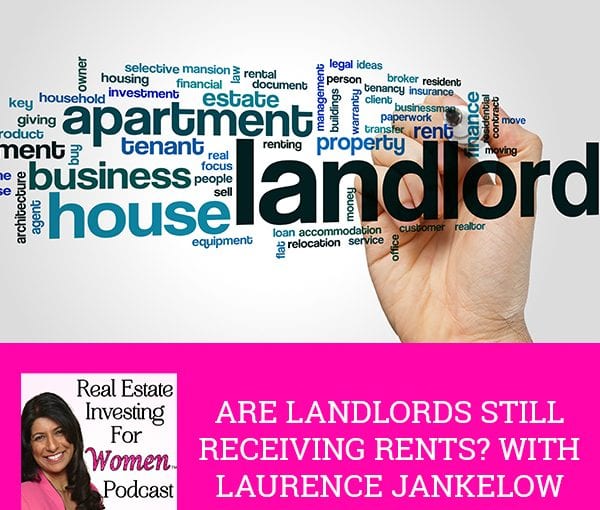
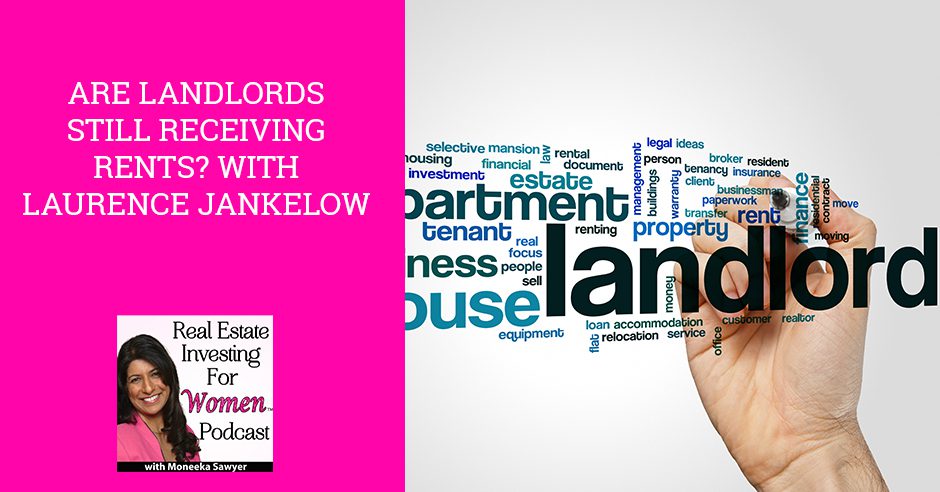






 Maureen McCann joined Spartan Invest in April of 2014. As the VP of Sales and Marketing, Maureen brings with her 6 years of sales and marketing experience in the turn-key marketplace. Having served as an Investment Property coach for years, Maureen is skilled at helping clients build turn-key cash flow portfolios for her clients; she has helped hundreds of investors build the type of rental portfolios necessary to reach their short-term and long-term monthly passive income goals. Investing in turn-key real estate for long term wealth generation is something Maureen understands intimately.
Maureen McCann joined Spartan Invest in April of 2014. As the VP of Sales and Marketing, Maureen brings with her 6 years of sales and marketing experience in the turn-key marketplace. Having served as an Investment Property coach for years, Maureen is skilled at helping clients build turn-key cash flow portfolios for her clients; she has helped hundreds of investors build the type of rental portfolios necessary to reach their short-term and long-term monthly passive income goals. Investing in turn-key real estate for long term wealth generation is something Maureen understands intimately.
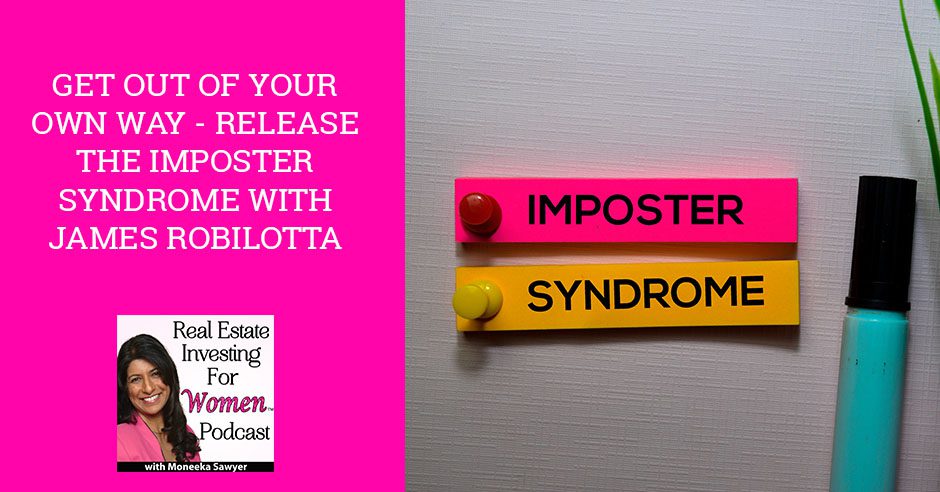

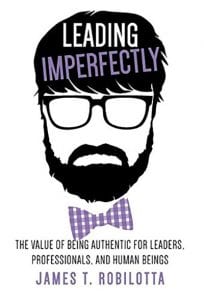

 James is an author, speaker, coach, & entrepreneur. His book is titled: Leading Imperfectly. He speaks internationally to willing & unwilling attendees about authenticity & vulnerability in leadership & life. His clients include AMEX, GE, & others. He’s also an experienced stand-up & improv comedian.
James is an author, speaker, coach, & entrepreneur. His book is titled: Leading Imperfectly. He speaks internationally to willing & unwilling attendees about authenticity & vulnerability in leadership & life. His clients include AMEX, GE, & others. He’s also an experienced stand-up & improv comedian.



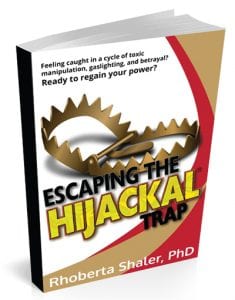
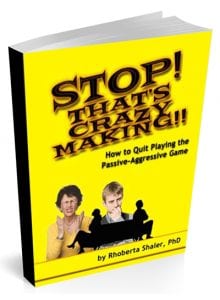
 Rhoberta Shaler, PhD, The Relationship Help Doctor, provides urgent and ongoing care for relationships in crisis. Her mission is to provide the insights, information, and inspiration for clients and audiences to transform relationship with themselves and other humans to be honest, respectful, and safe in all ways. Even the United States Marines have sought her help!
Rhoberta Shaler, PhD, The Relationship Help Doctor, provides urgent and ongoing care for relationships in crisis. Her mission is to provide the insights, information, and inspiration for clients and audiences to transform relationship with themselves and other humans to be honest, respectful, and safe in all ways. Even the United States Marines have sought her help!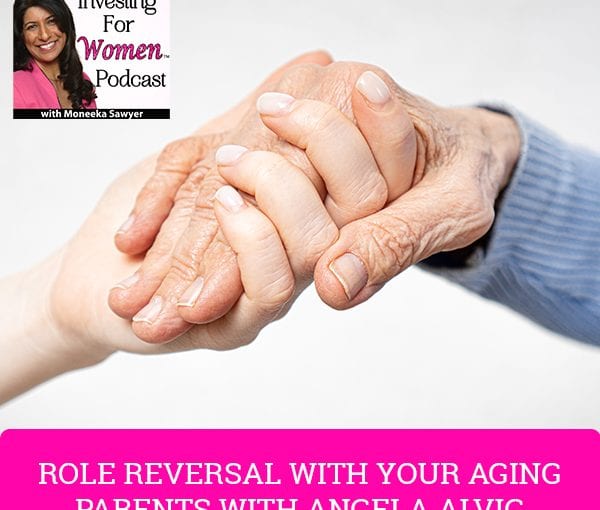
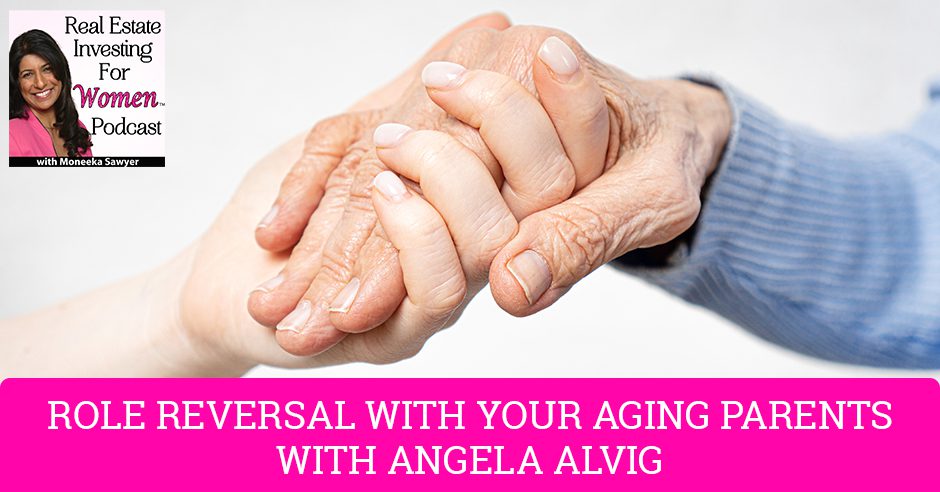



 Angela Alvig is a Personal Wealth CFO for her clients – a trusted advisor who is intimately familiar with their financial situation, values and priorities. She is a passionate, results-oriented CPA who possesses a unique combination of technical expertise and interpersonal skills, with a proactive, action-oriented approach. With over 20 years’ experience in finance, accounting and the family office industry, Angela is Founder and President of Simplify Wealth LLC and leads a team of 10 professionals.
Angela Alvig is a Personal Wealth CFO for her clients – a trusted advisor who is intimately familiar with their financial situation, values and priorities. She is a passionate, results-oriented CPA who possesses a unique combination of technical expertise and interpersonal skills, with a proactive, action-oriented approach. With over 20 years’ experience in finance, accounting and the family office industry, Angela is Founder and President of Simplify Wealth LLC and leads a team of 10 professionals.